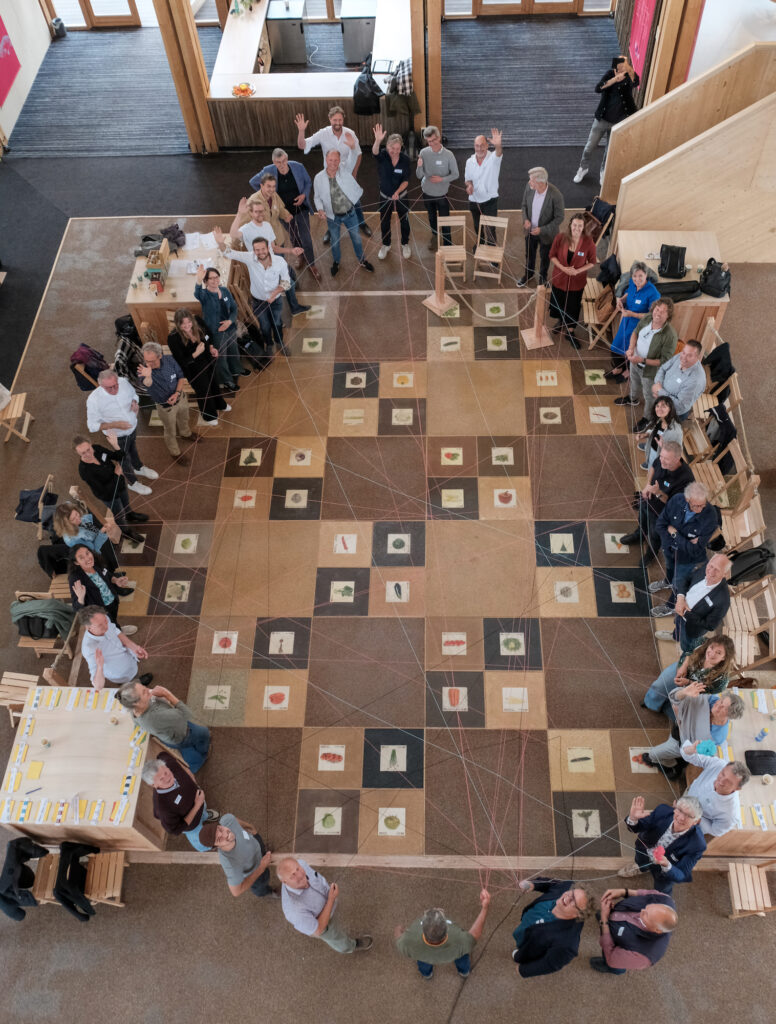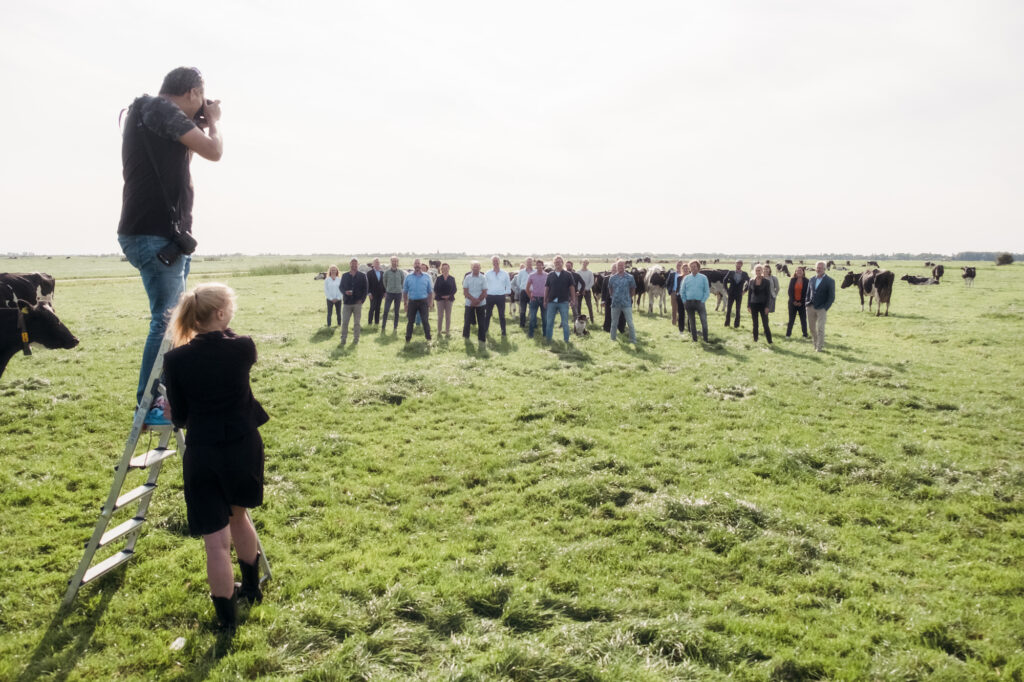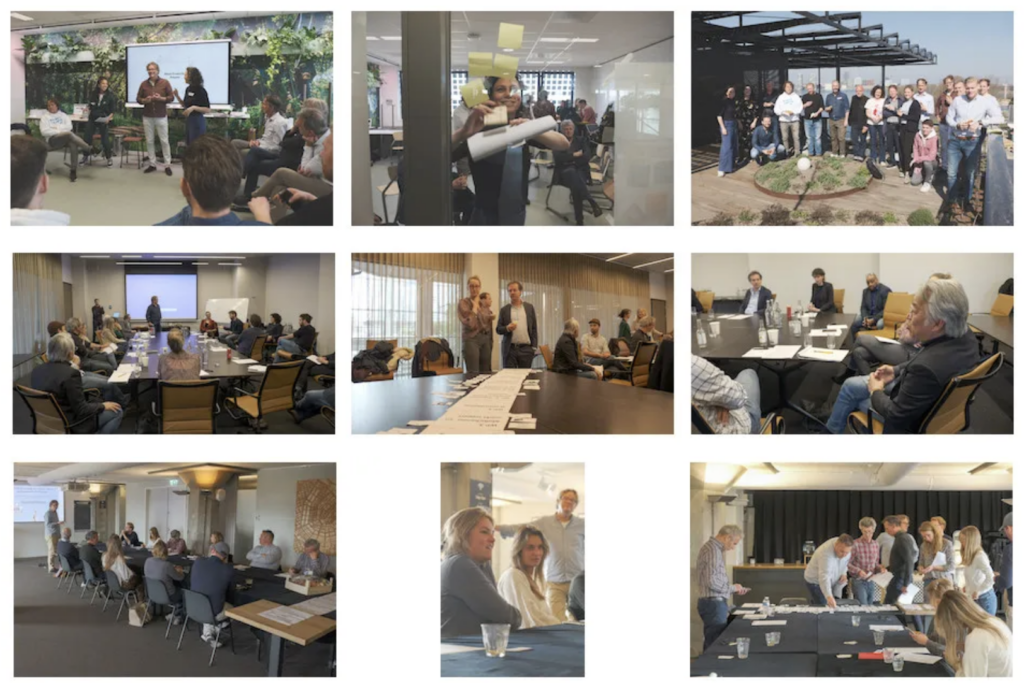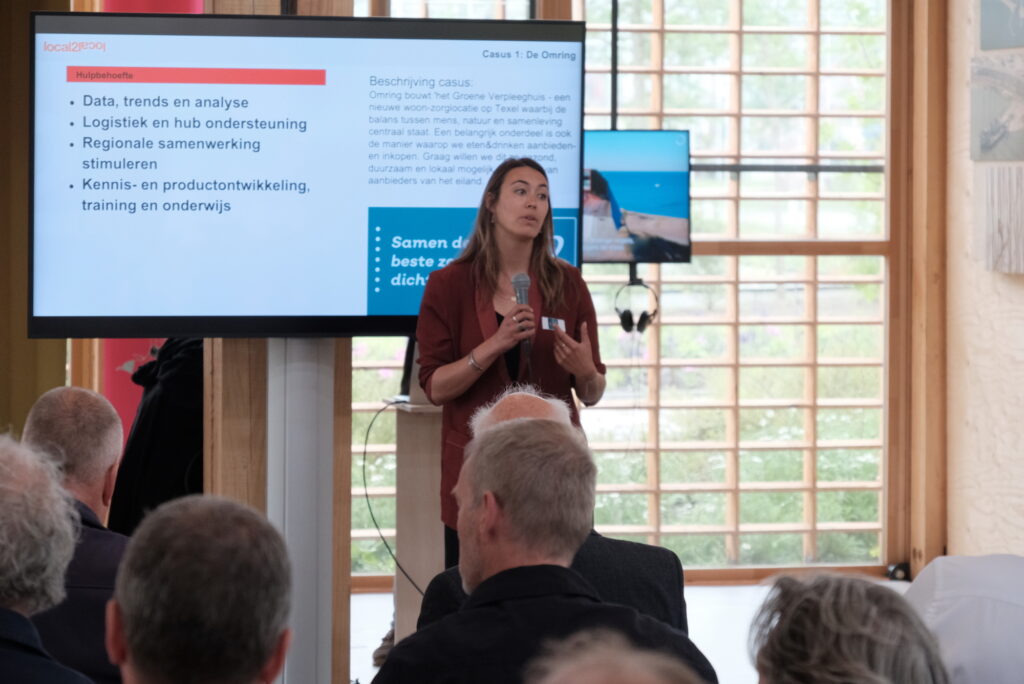Rollout strategy of a robust, regional and regenerative food system

‘The new normal is healthy, vital and local.’
Corona clearly exposed the vulnerabilities of our global food system. The war in Ukraine showed our addiction to fertilisers.
The system is broken and denial is no longer possible. Do we still have the ability to solve this ourselves? There are only 50,000 farmers left, feed is imported and that is at a standstill. Only a small group still does cooking, we are addicted to fat, sugar and convenience. The vegetable garden is now called Farmville, milk grows on a plant. We have made the accountant the boss of the food system and the farmer a slave to the economy. Soaking, the company HAK does for us, now a Russian company. The jars come from China and the cans from Ukraine. In short, can we still solve this crisis ourselves?
Where did this go wrong and how do we solve it? Let’s reset. Not ‘Great’, but ‘Local’.
Amped’s robust rollout plan for a regional, regenerative food system in the Amsterdam Metropolitan Area (AMA) offers a solid solution, around which many parties are now organising. More than 65 organisations and several major international research programmes are supporting us and farmers are in the starting blocks.

What has all been done? It started in October 2020, in the meadow of Farmers of Amstel, where Amped, together with the Task Force Short Chain, Food Hub and Rabobank, took the lead in organising a regional, regenerative food system.
The following 2 years saw the creation of an online platform, a reverse marketplace, metropolitan logistics, many activities for inspiration and, above all, close collaboration. Watch this short explanation:
This inspiration phase was partly funded by a contribution from Rabobank Amsterdam, the Municipality of Amsterdam and from the Province of Flevoland. All other investments were made through the dedicated efforts of Amped, Local2Local, Vereniging Flevofood, Boeren van Amstel, Groene Hart Coöperatie, ProeVkantoor, Vereniging Noordzeevis IJmuiden, Dapper.Texel and Oregional.

On 3 December 2021, during the third corona wave, we completed this inspiration phase and started the activation phase. Watch the explanatory video (12 min):
With more than 65 partners we held several co-creation sessions in collaboration with Floriade Expo 2022, Impact Hub Amsterdam and Pakhuis de Zwijger.
The aim of these meetings was:
- to gain insight into the multitude of projects and activities we do together;
- find out what practical help each partner needs and where everyone’s qualities lie;
- to connect with students (networks) of the HvA and the VU.

We have also made our online platforms ready for blockchain integration. Watch Mark Frederiks’ presentation in Dubai (from 06:09:00) on what the purpose of this is:
It is important to mention that with an in-kind contribution from Floriade Expo, Province of Flevoland and Impact Hub Amsterdam, this phase was entirely realised by the Amped/L2L-team and the tireless efforts of the farmer representatives from Flevofood, Groene Hart Coöperatie, Oregional, ProeVkantoor, Boeren van Amstel, Vereniging Noordzeevis IJmuiden and Dapper.Texel.

On June 8th 2022 we formally concluded the activation phase at The Natural Pavilion at Floriade. During this meeting, we gave insight into the harvest of activities and organisations that have committed to the roll-out plan. We played the Mycelium network game, making the connection of the participants even more tangible and insightful.

We also put the farmer representatives on stage to help out with their requests and needs. We played the fetch-and-return game to support the care institution De Omring in its transition to more healthy and local food.
The next phase in the process is the conversion phase. In this phase, we focus on long-term cooperation, guided by the GAIN transition model. The cooperation will start to organise itself (in phases) from a sum of separate projects as a swarm.
Here, the chain of trust in our network, the mutual connection (distance from each other), everyone’s self-interest based on added values and actual proof through transparency are fundamental ingredients.

For long-term cooperation, the focus shifts from project-driven to impact-driven. We organise steering (transformational governance) in four domains:
- Coordination & Policy
- Research & Innovation
- Market creation
- Socio-cultural Change
Several interlinked projects have been awarded in the past month:
- COREnet (2022-2027): this EU project invests in knowledge development for short chains for 5 years. Short Chain Taskforce Foundation is project partner;
- EU4Advice (2022-2027): the core of this project is knowledge sharing and exchange in the short chain. EU4Advice functions as a national and international focal point. AMS Institute and Amped are project partners in this;
- FOODCLIC (2022-2027): this project focuses on urban food networks and their role in the transition of the food system. The VU is project leader;
- Data Value Center Agri & Food: this project has now started. In it, two Horizon Europe thematic networks work together with Smartchain and Smart Agri Hubs. The short chain development in the MRA is leading in this and Food Connects is the leader.
The combined research and development budget is over €22 million.
- Links have also been made with NWA programmes and a broad consortium of universities, colleges and private educational institutions is active;
- An extensive programme of short chain activities is linked to Floriade. Association Flevofood even has a short chain pavilion on the Expo site;
- Utrecht University is also hooked on and signed a Memorandum of Understanding with Amped on 13 May 2022, through which UU will support our network in scientifically underpinning the ecological, economic and social relevance of local food and the real value of the farmer.
A good breeding ground has been created for active cooperation with the short chains from an urban perspective. The ‘Food around the Defence Line’ initiative has now been enriched with an area-based approach called ‘De Groene Stelling’, working towards Amsterdam 750 year anniversary, a good programme should be created here. We are working hard on this in the background.
In the coming three months, we will do the following together:
- We will launch a writing office to leverage even more Dutch and EU calls and get all voluntary contributions reimbursed as well;
- We will supply 300 large office locations of caterer Compass Group with local food, including in Noord-Holland, Amsterdam, VU, at Zuidas locations, Tata Steel and many more;
- We will analyse the processes of all connected projects on how we can combine these activities and set up a network of experts for this;
- With the core group, consisting of Amped, Yes & More, Impact Hub Amsterdam, Pakhuis de Zwijger, Floriade, Labora Returns, Grounded, Voedsel Verbindt, Local2Local and the connected farmer collectives, we will set up the transformational governance, and with these can-doers, the directing group will be formed.
We are enormously proud of the fact that the following affiliates are cooperating to make these steps possible;
Municipality of Amsterdam, Province of Noord-Holland, Province of Flevoland, Association Flevofood, Taskforce Korte Keten, Voedsel Verbindt, Food Council Amsterdam, AMS Institute, Hello Zuidas, Green Business Club, Impact Hub Amsterdam, Hogeschool van Amsterdam, Vrije Universiteit Amsterdam, Pakhuis de Zwijger, Big Data Value Center, Compass Group Nederland, Coöperatieve Producenten Groene Hart, Gorillas, Food Hub, Rabobank Amsterdam, Team-Ecosys, KramerBV, Labora Returns, Yes & More, FoodinTransition, Oer Onderwijs, ConvergenceCap, Natuurmonumenten.